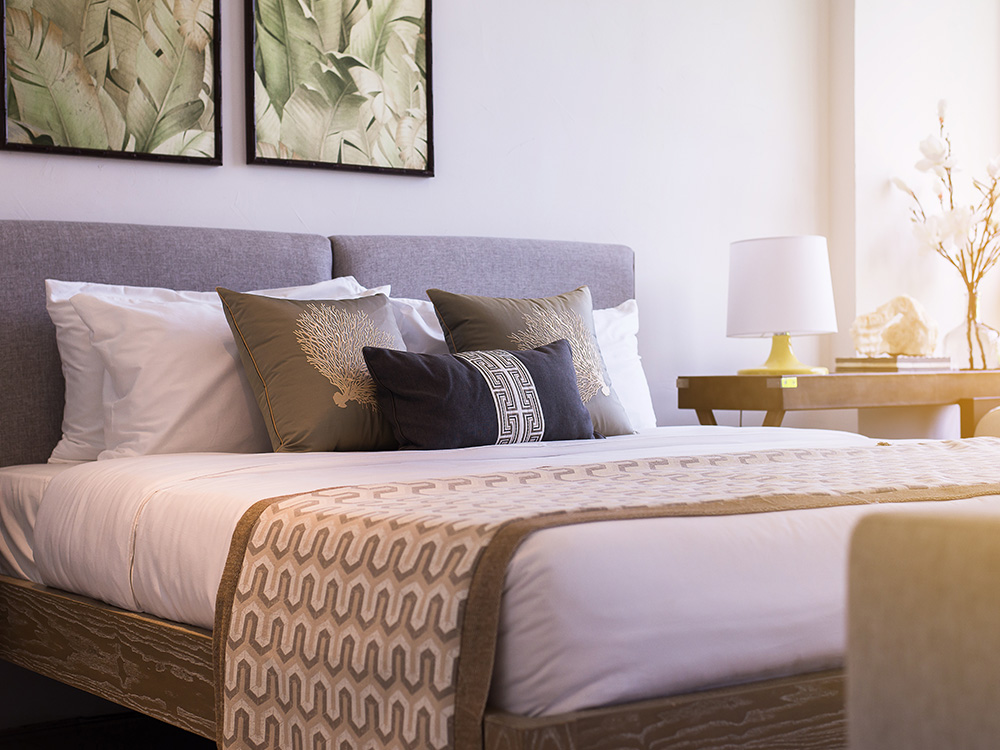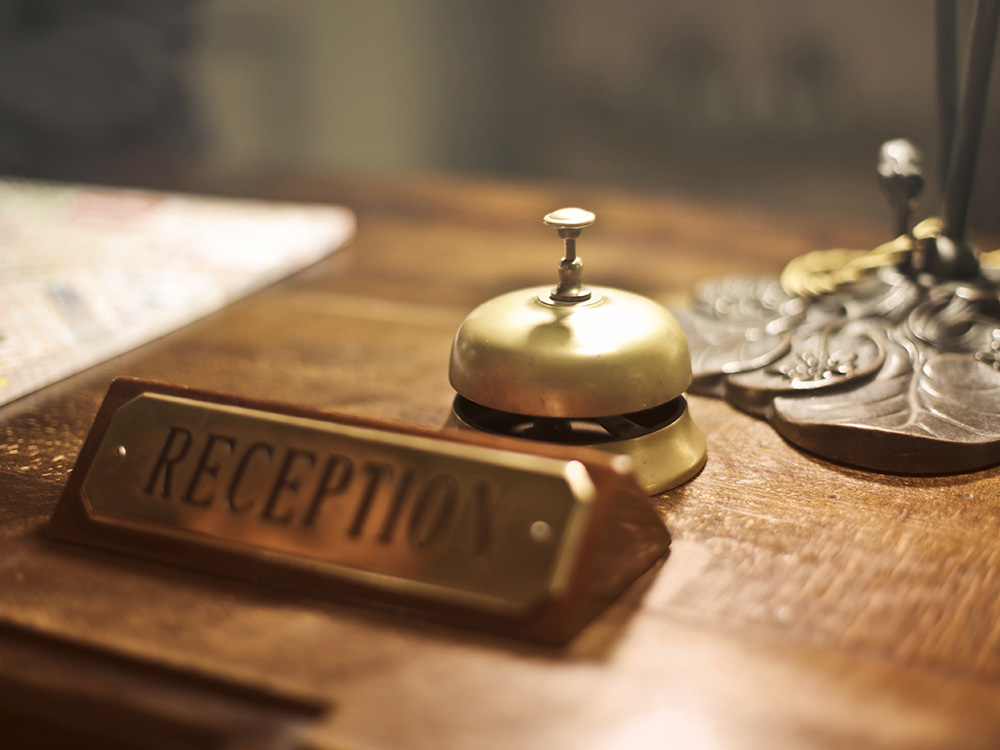On this page
The Key Steps to Buying a Hotel Successfully Insider's Guide: Key Steps to Buying a Hotel Successfully Building Your Hotel Business Plan Financing Your Hotel Purchase Funding Options For Buying A Hotel Exploring Bridging Loans Beware intense competition Diversifying Revenue Streams Embracing Technological Innovations Conclusion Buying a Hotel FAQsThe Key Steps to Buying a Hotel Successfully
To succeed in buying a hotel, there are vital steps one must follow - from understanding industry trends to identifying prime locations, crafting a robust business plan, securing financing options and more. Each step requires careful consideration and strategic planning. Buying a hotel can be complex and challenging, but with the proper guidance and resources, it's an investment that can yield significant returns.
A thorough knowledge of the market is crucial when buying a hotel, as this helps identify growth opportunities while being aware of potential risks or challenges. The importance of location cannot be overstated; choosing wisely could mean attracting high-paying guests consistently throughout the year.
Choosing poorly could spell disaster.
The journey towards owning your own hotel may seem daunting at first glance but remember, every successful hotelier started somewhere too. With perseverance and intelligent decision-making processes guided by expert advice, you'll find yourself on track towards becoming part of this lucrative industry.

Insider's Guide: Key Steps to Buying a Hotel Successfully
Grasping the nuances of the hotel industry is essential for anyone contemplating a hotel purchase. The sector is intricate, teeming with factors that could make or break your venture.
A common thread among today's thriving hotel owners was their ability to decipher market trends and adapt accordingly. They understood that purchasing an existing hotel wasn't merely about financial investment; it necessitated a long-term strategy considering potential consumer behaviour and market dynamics shifts.
Besides, these individuals realised early on that owning property within this sector required more than just monetary commitment - time, effort understanding customer needs while keeping up-to-date with changes in the hospitality landscape were all integral components ensuring profitability over time.
The Significance of Location in Hotel Business
When contemplating a hotel purchase, the location is an essential consideration. The place you choose directly impacts your business strategy and target customers. Many local hotel businesses have flourished by understanding what their local market desires.
Conducting Market Research to Determine the Best Location Opportunities
Comprehensive market research must be undertaken to pinpoint the ideal location for your hotel. This encompasses analysing factors such as local demographics, tourist attractions, and competition, amongst other elements that could influence the success of your venture.
Demographics provide valuable insights into an area's residents and their potential needs from a hospitality perspective. Proximity to popular tourist sites can also increase attractiveness due to the convenience factor for guests.
A detailed analysis of competitors within chosen locations helps ascertain if markets are saturated or underserved. Hospitality Net suggests employing competitive analysis tools like STR reports which offer data on supply-demand trends across global markets.
Considering these aspects will help clarify whether this investment aligns with current industry dynamics and future predictions within today's bustling hospitality sector.
Building Your Hotel Business Plan
Crafting a comprehensive business plan is an integral part when considering the hotel purchase, whether it's an existing establishment or starting from scratch. This blueprint outlines your vision for the building you're purchasing and maps out how to bring this vision to fruition.
A thorough target market analysis should be the foundation of any sound business plan. It's about understanding who will stay in your rooms, what they want from their accommodation experience and why they choose one place over another.
These insights shape service offerings, pricing strategies and marketing initiatives.
Financial projections are also key components within your strategy, providing detailed revenue forecasts alongside costs associated with running operations in chosen hotel business locations - including staff salaries, utility expenses, and maintenance overheads - balanced against projected profits over time.

Understanding The Market And Creating A Business Plan
To start with, familiarise yourself with the hotel sector. Understand what larger hotels offer and what local hotel businesses are doing differently. What makes them successful? These insights will guide your long-term plan and business strategy.
A great business plan outlines every aspect of your proposed operation - from identifying potential problems and solutions to forecasting revenues and expenses.
Specialist hotel advisors can provide valuable input here; their expertise could prove invaluable when negotiating purchase prices or determining if the building you're purchasing is worth investing in.
Consulting Specialist Hotel Advisors
Staffing issues currently pose significant challenges in today's hospitality industry landscape, making it vital for prospective buyers to understand the intricacies of running hotels and with increasing costs for hotel owners leading to increased room rates during cost-of-living crises, it's crucial to consider how these factors might impact occupancy rates.
This knowledge will help you decide whether purchasing an existing hotel or building from scratch would be more beneficial.
Financing Your Hotel Purchase
The decision to buy a hotel should not be taken lightly. It's a costly project to undertake and the funding must be meticulously considered.
Funding Options For Buying A Hotel
Your acquisitions team plays a critical role at this stage – they need to identify viable funding options based on your financial situation and the specifics of the purchased property.
Several factors, including location, property type, size, and condition, can impact the purchase price of a hotel. For instance, larger hotels in prime locations are often priced higher than smaller establishments in less frequented areas.
Funding options for your hotel purchase aren't limited to traditional bank loans, which may involve lengthy approval processes not suitable if you're buying an existing hotel with urgency.
Exploring Bridging Loans
A commercial bridging loan offers investors flexible short-term finance designed specifically for buying properties such as hotels quickly while longer-term financing arrangements are made.
As an alternative source of finance, bridging loans have several advantages over traditional bank loans, including speedier approval times and less stringent eligibility criteria, which means even first-time buyers stand a chance at owning their dream property!
Bridging Loans serve as attractive alternatives within the hospitality industry. These short-term funding solutions provide faster approvals than traditional loans and offer flexible repayment terms that align with your business strategy - ideal for acquisitions teams needing quick access to funds or those with a long-term plan requiring financial flexibility.
Specialist finance providers excel in this form of lending, catering specifically to businesses within the local market desires of the hotel sector.
To ensure competitive rates when purchasing a building you're interested in - whether it's an established favourite or one brimming with potential - consider exploring all available funding options before making any investment decisions on how best to proceed further into today's bustling world of hospitality industry ownerships.
Beware intense competition
Competition in the hotel industry is intense, with major and minor players striving to gain a foothold. A detailed competitor analysis can shed light on trends, customer preferences, and potential opportunities within this industry.
The first step involves identifying key competitors - larger hotels and smaller boutique establishments that may cater to niche markets. Resources such as Statista's UK hotel company database could be invaluable here.
Finding Opportunities through Competitive Analysis
Finding gaps in current offerings is another crucial aspect of competitive analysis. These are areas where existing providers aren't fully meeting customer needs - an untapped goldmine for those willing to innovate.
You might uncover underserved demographic groups or notice specific amenities popular abroad haven't yet caught on locally. In either case, these represent unique opportunities for your offering - compelling reasons why customers should choose your establishment over others in today's crowded hotel industry landscape.

Diversifying Revenue Streams
The hotel industry is in constant flux, and as an owner or potential buyer, it's vital to stay ahead. One way to remain competitive is to diversify your sources of income.
Offering more than just rooms for the night appeals to a broader customer base and provides financial stability during slower periods or unforeseen downturns. For instance, adding event hosting services or dining facilities could be profitable ventures alongside your main accommodation business.
Embracing Technological Innovations
In today's dynamic hotel industry, embracing technological innovations is no longer an option but a necessity. Technology has revolutionised how local hotel businesses operate and interact with their target customers. It has significantly improved service delivery, operational efficiency, and customer satisfaction.
One of the key reasons why investors would invest in a hotel is the growth potential that comes with leveraging technology. For instance, larger hotels have adopted digital check-in systems to enhance guest convenience, while smaller establishments use social media platforms to engage their clientele effectively.
The Role of Technology in Hotel Acquisitions
When considering buying an existing hotel or entering into the hospitality industry as a new owner, it's crucial to understand how technology can influence your business strategy. A comprehensive business plan should include details on how you intend to utilise tech advancements for operations, marketing, and customer engagement.
Your acquisitions team must consider any existing technologies within the building you're purchasing – from automated booking systems down to innovative room features - as these will significantly impact your purchase price. Consulting specialist hotel advisors could provide valuable insights on this front.
Leveraging Specialist Finance Options
Bridging loans presents a viable funding solution when acquiring property in the competitive hotel sector. These short-term financing options offer flexibility that traditional lenders often cannot match, perfect for those who need quick access to funds during transactions like purchasing hotels where time is critical.
Avoiding Common Mistakes When Buying a Hotel
Embarking on the journey of hotel purchases can be thrilling, but it's not without its pitfalls. It is all too simple to make blunders that could bring expensive results later.
The first mistake often made is overlooking the significance of location in your venture into local hotel businesses. The success or failure of your endeavour hinges greatly on this factor - understanding what appeals to potential customers within your chosen locale is paramount.
Evaluating Building Condition: Another crucial aspect when purchasing an existing hotel is assessing any potential structural issues with the building you're buying. Commissioning a professional survey should never be skipped, as unexpected renovations can inflate your purchase price considerably. Find out more about property surveys here.
Formulating Business Strategy: Neglect towards creating a comprehensive long-term plan for managing and expanding post-acquisition business operations also ranks high among common mistakes during hotel purchases.
Funding Options: Negligence in financial planning, such as exploring various funding options available, can prove detrimental too. For instance, bridging finance from Finbri offers swift access to funds coupled with flexible repayment terms - making it ideal if larger hotels are part of the consideration where quick deal closure matters significantly.
Lastly, do remember competitor analysis at both local and national levels within today's bustling UK-based hospitality industry plays a key role - knowing who you're competing against helps shape successful strategies moving forward.
Reasons Why Investors Buy Hotels
Purchasing a hotel is appealing to many investors, offering the potential for high returns and diversification. It's not just about possessing physical assets; it also entails being part of the dynamic hospitality sector.
Partnering with Financial Institutions
The prospect of aligning oneself with financial institutions is a significant drawcard in purchasing hotels. Banks and other lenders frequently have specific divisions dedicated to financing within the hospitality sector, providing bespoke loan options tailored towards acquisitions in this space.
This can be particularly beneficial when looking at larger hotels requiring substantial funding. Bridging loans offer rapid access to funds and flexible repayment terms, making them ideal for those eyeing immediate purchase opportunities.
Beyond traditional banks are specialist finance companies focusing solely on real estate investments, including hotels. These firms comprehend both challenges and rewards associated with investing in this area, making them invaluable partners when shaping your business strategy or long-term plan.
In essence, partnering up with financial institutions provides essential support throughout buying a hotel - from securing initial funding through ongoing operational management assistance post-acquisition.
Conclusion
Delving into the hotel industry is an exciting journey. While there are investment risks, COVID-19's impact on the hotel industry is a recent example; with the proper research and industry knowledge and understanding, it's a sector brimming with potential, ready for those prepared to take it on.
The location of your prospective hotel holds significant weight. Choosing a suitable location for your hotel with due consideration and forethought is essential to achieving success.
A comprehensive business plan is not just a necessity but also your roadmap to navigating this dynamic industry effectively.
Understanding costs and exploring various financing options will equip you with the financial agility needed in today's competitive market.
Analysing competition helps identify gaps that could be turned into opportunities for growth and expansion within the local or national hotel sector.
To future-proof your investment, consider diversifying income sources by offering additional services such as event hosting, dining facilities, and accommodation services.
Mistakes are part of any venture, but learning from other's experiences can help avoid common pitfalls when buying a hotel.
We're experienced financial experts who arrange short-term bridging loans for property owners, securing you the best deal from over 200 bridging loan providers, including private investors and family offices.
Get expert assistance today; we're on hand to answer any questions about bridging loans.
Call our friendly team on 01202 612934, we're ready to help.
Buying a Hotel FAQs
Is it profitable to buy a hotel?
Buying a hotel can be profitable if managed effectively. Factors such as location, market demand, and operational efficiency significantly influence profitability.
How do I buy a hotel?
Purchasing a hotel involves conducting industry research, identifying an ideal location, creating a business plan, understanding costs and financing options, analysing competition, and future-proofing your investment.
Can I buy a hotel and live in it?
You can reside in your own hotel; however, this depends on local laws or regulations regarding owner-occupancy within commercial properties. Always consult with legal experts first.
How profitable is running a hotel?
The profitability of running hotels varies greatly based on factors like size, location, and management strategy. A well-run establishment in high-demand areas can yield significant returns.
